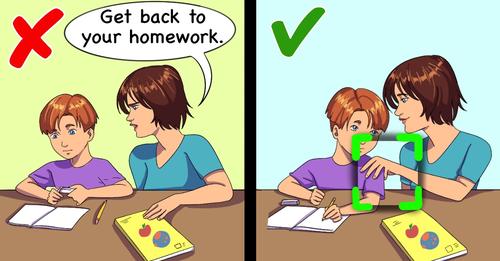
Bringing out our child’s brilliance and potential to the world is one of the biggest goals we carry as a parent. In fact, working with children in any capacity would make you want to ensure that this is done. However, challenges revolving around the child’s ability to concentrate and focus during a task can hinder them from actively showcasing their gifts and abilities to the people around them. As parents we have all been in this place of frustration. Children sometimes just find it hard to focus on one thing and there are many reasons this may be the case. From stress to ADHD or just an endless stream of mind numbing content on the phone, many obstacles present itself on their path to completing a task. This is why it’s so important to help your child increase their ability to focus on the task at hand in order to be organized and successful. If you’d like to know how to do just that then this is the article for you. Read on!
1. Encourage Your Kids To Do Some Form Of Physical Activity
Do you ever wonder why you are far more productive and energetic when you work out in the morning or take your dog for a walk? Well these things aren’t coincidental. Doing some kind of physical activity is a great way to wake your brain up and motivate it to stay focused on the tasks that you have planned to do during the day. So, let your child engage in some form of physical activity before they sit down to do their homework. Make sure they have a chance to jump around or go for a run, do some chores around the house, walk back home from school or even play outside.
2. Use Signals To Help Them Focus Better
Sometimes having a conversation with your son can derail from constructive to meaningless quickly and before you know it, it’s time for dinner. So, the best thing you can do is avoid conversation with them as much as possible until they have completed a specific task or done with their homework. Instead, you can come up with a few signals to help them stay focused when they seem to be losing concentration. You could point at their work to signal to them that they should get back to what they are doing. Raise your hands to signal that they must stop whatever they are doing and get back to work. This is especially effective if your child takes breaks frequently. You can also lay a hand on their shoulder to bring them back into focus.
3. Make Things Interesting And Fun
Learning is supposed to be a fun experience. So if your child doesn’t naturally take to a certain subject matter it’s time to switch it up. If they like fiction more than non-fiction, allow them to read a page out of their favorite book every time they read a page of non-fiction. If they don’t like doing math, allow them to do math in the sand outside instead of on paper indoors. It’s all about including the factors they like when learning things they may not gravitate towards. Creative learning is fun!
We all have very stereotypical ideas when it comes to what focus and concentration looks like. Sitting in a classroom is not what constitutes being a focused student. Ask yourself, is your child not interested in anything? Are they always restless and fidgety? You’ll realize that there are times when they are willing to concentrate and that is your general framework. Tap into their interests and work forward.
4. Do One Task At A Time And Break Them Down
Children are not multitaskers. Getting your child to do more than one thing at a time will do nothing but reduce their quality of work and reduce their ability to focus. So make sure you give them only one thing to do at a time. Teach them to finish the problem at hand efficiently and then move onto something else. Now the best way to tactile a task if it seems too complicated is to break it down into smaller, more manageable tasks. If cleaning up an entire room seems too daunting for your child, ask them to clean a table or straighten out their bed. Once they are done with that task they can move on to something else. Soon they would have cleaned the entire room without even realizing it.
Teaching your kids to focus is no easy task, especially when they don’t want to. But that doesn’t mean that it’s impossible. With a few tricks and some patience, your child will learn the skill of focus a little more everyday. And soon they will accomplish anything they put their minds to.




